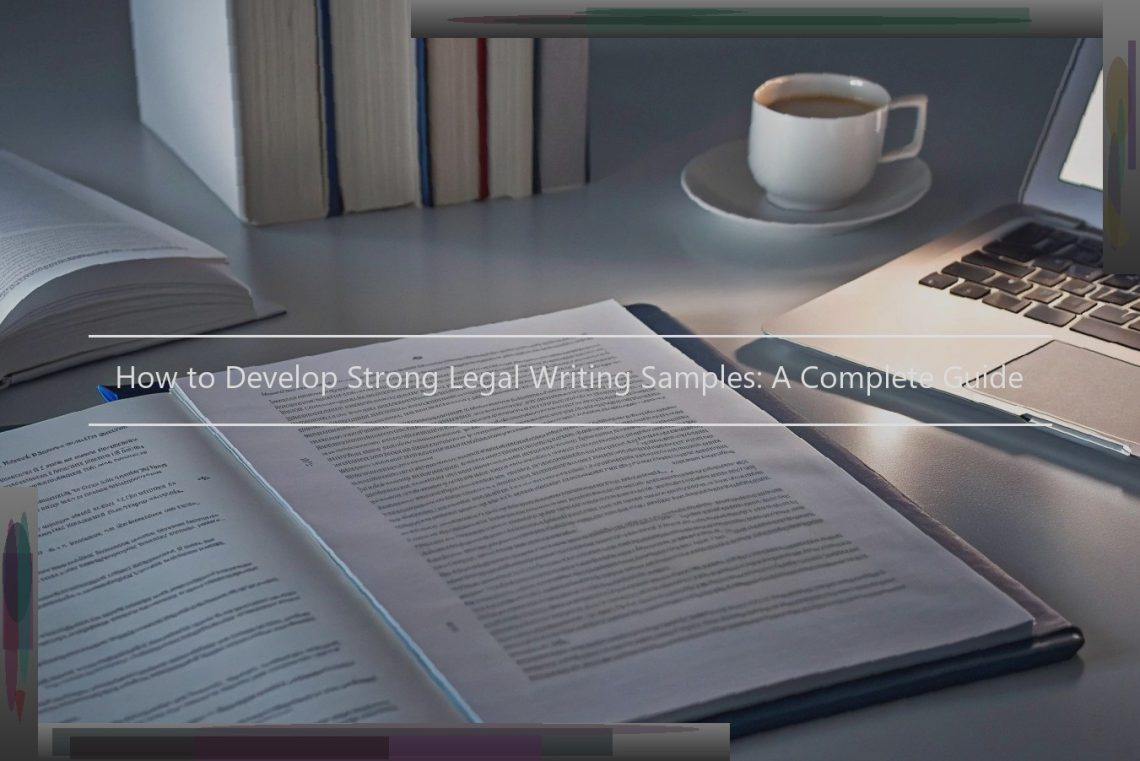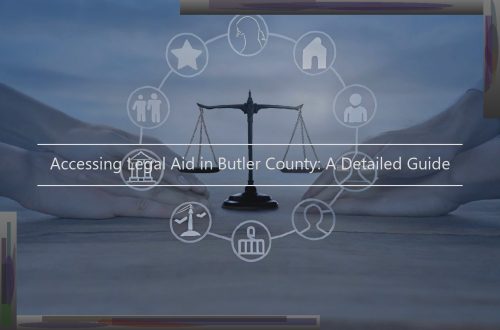
How to Develop Strong Legal Writing Samples: A Complete Guide
The Basics of Legal Writing Samples
For a law student, writing samples help demonstrate your legal proficiency and analytical skills. They can also be a great tool by which you can let your personality through. From various kinds of assignments to extracurricular writing exercises, students should build a portfolio of writing samples over their period of study. Law students can then showcase these writing samples – or at least indicate the ability to successfully write these samples – in their job applications, showing potential employers their ability to engage successfully with the job description (academic service or legal writing and research) and prove their worth as employees . Well-established legal professionals will also find obvious benefits in a high-quality writing sample. Your legal writing will be the first thing that potential clients or employers see of your legal mind; in many cases, it may be the only close, personal taste of your work before you’re considered for that position. While it’s true that generally speaking, employers won’t read every writing sample an applicant submits, they will take the chance to evaluate your writing abilities, so it would be a mistake to present your work in a careless manner.
Components of Effective Legal Writing Samples
Clarity is one of the most important components. At its core, effective legal writing, and legal writing samples, must be clear. Clarity in legal writing is how you make sure your clients and clients’ clients can understand what you’re trying to tell them and allows the reader to quickly comprehend the arguments being made. Making your point requires words and sentences presented in a manner that makes that point as clearly as possible. This involves more than good grammar (though good grammar is essential), but also relies on diction, syntax, sentence structure, transitions, and the avoidance of sentence fragments. Clarity also involves being concise – that is, stating something in as few words as possible without sacrificing meaning.
A persuasive legal writing sample goes beyond mere clarity. It gives your reader not just information, but conviction too. It includes words designed to persuade, or convince, and is mindful of rhetoric and pathos. While clarity is primarily about the words, persuasiveness places more emphasis on leaps of logic – think of it as the difference between understanding a statement and finding it compelling.
Correct grammar, or grammatical accuracy, should go without saying. It is, nonetheless, a key to high quality legal writing. Incorrect grammar will make your point harder to make, and might even interfere with communication altogether. A persuasive argument, for example, that relies on complex mental leaps needs the crutch of correct spelling and punctuation to help it land the way you intended. Remember, however, that both the mechanics of grammar and its interpretation are jurisdictionally dependent – what is considered proper in a certain state or federal jurisdiction may not be in another.
Adherence to legal standards is the last, but not least, element of high quality legal writing. Given how much of legal writing has to do with the law specifically, reading and understanding the conventions of legal writing is essential. It is the difference between high quality legal writing and…well, not a sample at all. The best approach is to give your writing sample, including the argument(s) contained within it, the citation weight required by the governing authority.
Determining The Best Legal Writing Sample
The first step in choosing a legal writing sample is determining what the audience will expect and how specific it will be in terms of subject matter and length. The following will serve as guidelines for most situations, but be sure to double-check any applicable job postings. Also, be mindful that what is appropriate and expected in your current or prospective jurisdiction may differ from what would be considered appropriate in another (state and federal systems can differ widely). When in doubt, err on the side of caution and try to inquire what will be most suitable.
Briefs – Many employers will be looking for the writing sample to demonstrate that you are capable of briefing a case. That doesn’t mean they want to see a full-length brief! Briefs range widely in purpose and scope, but typically, lawyers draft briefs in three different lengths-full length, long half, and short half.
- A full-length brief should discuss all relevant areas of law. Employers will want to test your knowledge of different fields of law and compare your written style and analysis with that of others. The best way to do this is to provide them with something they are likely to need, but not likely to have.
- A long-half brief can cover all topics, but may not address one or more of the lesser areas. This could be done because the attorney does not have enough information to feel comfortable discussing a particular section, or that they did not feel there was enough to warrant discussion.
- A short-half brief is generally reserved for surfaces level discussions of the law the attorney felt was not critical to his position at the time. If the attorney did not rely on a particular aspect of law but felt the information should go on record, this is the type of brief they might draft.
The Formatting of Legal Writing Samples
Just as the substance of your writing sample matters, so does the overall presentation of the piece. For example, some typographical problems are less serious than others and can be revised before you submit the piece. But there is no excuse for sloppy footnotes. A sloppy footnote will color the reader’s opinion of an otherwise perfect piece. A writing sample that does not conform to the guidelines for the employer or jury pool is unprofessional.
The classic way to footnote a document is to place a superscript numeral in the text, with a corresponding footnote at the bottom of the page. When a typographical error occurs in a footnote – e.g., the numeral in the text is wrong, or the footnote is supposed to be at the bottom of the next page – it is very noticeable. In Word, there is a "footnote" function for the program to correctly space your material in the text with a superscript numeral and then in the footnote with the same superscript numeral in the correct spot.
An alternative way to prepare a writing sample is to use endnotes, sometimes called "conventions" by law students. To do this, insert a numeral at the appropriate spot in the text, remove the number, and insert a list of references at the end of the manuscript with the textual citation. For example: In a criminal trial, evidence is admissible if it is not excluded by the rules.
See
N.C. Gen. Stat. 8C-1, Rules 401-28 (1983).
There is no right answer here. Sometimes the employer will post guidelines for how to prepare the writing sample. If there are no guidelines, go with the endnotes. Always check the requirements for a specific job. Not only is the writing sample a test of writing, but it also might be a test of attention to detail. An employer will be watching to see if you follow the guidelines. Spending the time to prepare your writing sample correctly is time well spent.
Pitfalls of Legal Writing Samples
While some candidates may feel they have created winning writing samples with ease, many applicants struggle to put together a quality legal writing sample and may end up with a subpar product. Here are common pitfalls to guard against when providing law school writing samples:
Plagiarism – aside from being unethical, it is an obvious red flag for employers.
Easily searchable conclusions – no employer wants to have to wonder whether you completed the legal analysis, or whether you simply "borrowed" an existing article. Take the time to come up with something original to include in your writing sample.
Lack of coherence – if your process is disorganized or your argument isn’t clearly developed, it will show in your writing sample . Give yourself enough time to develop a clear thesis and outline your arguments before you start to draft.
Filler sentences – superfluous information will kill your writing sample, which should be brief and concise.
Too much "legalese" – avoid unnecessary or obscure legal language, especially since your audience could be non-lawyers.
Trying to impress – just like in other application materials, it is important for your writing sample to be of excellent quality, but trying too hard to impress is a surefire way to make yourself look foolish.
Ignoring the assignment prompt – if your writing sample is requested in connection with a specific application or assignment, do not send an unrelated writing sample that does not connect back to the prompt.
Composing and Refining Legal Writing Samples
The final stage is critical. When you think your sample is ready, it isn’t. Every good writer revises – and then revises some more. Revising means getting some distance from what you have written (the best way to do that is to let it sit for a while) and then coming back to it with a fresh eye and a fresh mind. You want to look for sentences that are too long, sentences that go in too many directions or in the wrong direction, sentences that use the passive voice when they should be in the active voice, sentences that use jargon and sentences that just don’t make sense. It’s helpful to read your writing out loud at this stage because it will help you hear how your writing sounds, which is an important, but often overlooked, aspect of clarity and flow. Writing is for your reader, not you; and to have your writing make sense, it must make sense to your readers first. So, if you can’t make sense of what you have written, your readers won’t be able to either. Once you have revised and polished, you will want someone else to review your work as well. Ask colleagues, mentors and friends to read your draft and offer suggestions for improvement. Seek out people whose opinions you trust and who will provide you with honest feedback – both positive and negative – on your writing. Don’t take offense to anything that is said. Try to use what you hear constructively. Writing is an art, but like all arts, the ability to draft and revise is something learned and refined over time. The more you write, the better you will get at it.
Presenting Your Legal Writing Sample
When you’ve decided on the right legal writing sample, it’s time to think about how you can best showcase your skills and knowledge. You can use your legal writing sample in a number of ways, from creating a portfolio to offer to potential employers, to adding the writing sample as an attachment on your job applications, to using your sample in the interview process to demonstrate your skills and abilities. The way you present your legal writing sample depends on which method you are choosing. Now that you’ve created this sample to showcase your skills, it’s time to think about how you can present it to potential employers in a way that will encourage them to ask you to interview.
One approach for showcasing your writing sample is to create a full portfolio of your work. This portfolio can be used when applying to graduate programs , particularly those with a focus on research and writing. Your portfolio can be presented as either a hard copy or digital document. The key is to ensure that you select an organized layout in which to present your work. A portfolio is also great to show if you are asked to do a presentation as part of your graduate program application process.
Another way to showcase your legal writing sample is to attach it as an attachment to your job application. This can be done via e-mail or by mail. In terms of e-mailing your legal writing sample to a potential employer, you should take care to ensure that it is attached to the actual e-mail rather than presented as a separate document. It is a good idea, also, to put a quick message in the e-mail stating that the legal writing sample is attached for review.
If you’ve been asked to interview for a job, you may have the opportunity to showcase your legal writing sample during your interview. While it is not a good idea to just hand over a written sample, it can be valuable to use your legal writing sample while you answer interview questions. By referring to your writing sample, you can share relevant experiences you’ve had that relate to the job you are interviewing for. Additionally, presenting your writing sample in this way shows engagement with the process, which can be beneficial to your overall impression on your interviewers.




